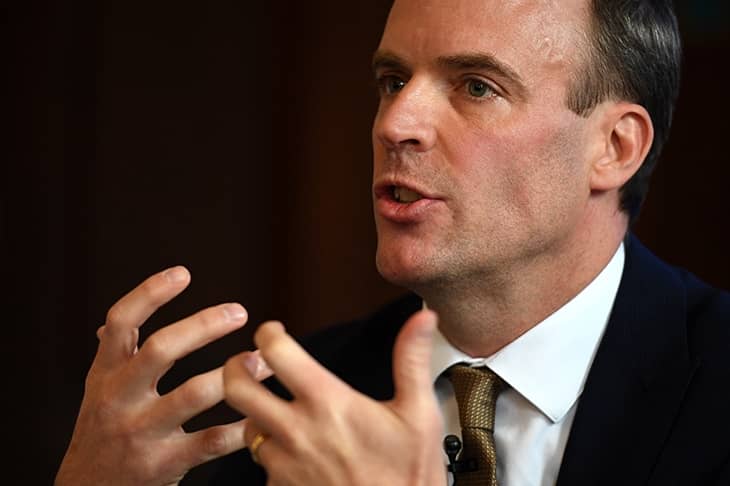Why are cabinet ministers Liz Truss and Dominic Raab squabbling like children over access to grace-and-favour Chevening? Because they know they are, ultimately, powerless.
The Greek statesman Solon (c. 590 bc) made the point long ago: ‘Those who have influence with monarchs are like pebbles used in calculations: for [depending on their place on the board] they can one moment represent a very large number, the next a very small one. So a monarch treats each of his advisers now as important and famous, now as valueless.’ Result: they seek to inflate their self-importance — while they can.
No one understood that better than the Stoic philosopher Epictetus (d. ad 135). Having been the slave of Epaphroditus, the secretary of Nero, he had personal experience of imperial life, and he likened men in Nero’s court to children at parties scrambling for nuts and figs. He explained why as follows: ‘No one loves Caesar, unless he happens to be a man of great worth, but it is riches that we love, or a post as tribune, praetor or consul. As long as we love these things, it necessarily follows that those who have the power over them will be our masters’.
The result was a life of constant humiliation (so much so that Seneca reported that an old courtier, asked how he lasted so long in imperial service, replied ‘By accepting insults and expressing gratitude for them’). Be invited to dinner by the emperor, Epictetus said, and one would fawn like a slave, fearful of making the slightest faux pas.
But even worse, what did it signify if one was not invited? If one wanted to become consul, he went on, one had to ‘stay up at night, rush this way and that, kiss men’s hands, rot away at other men’s doors, say and do much that no free man would willingly do, and day in, day out send presents and offer hospitality’. And for what? ‘To have attendants, judge trials, officiate at games and dish out food-parcels to your client-supporters’ — and all under the thumb of the emperor.
Epictetus’s advice? Grow up, and ‘restore yourself to decency, to self-respect, to freedom’.






Comments